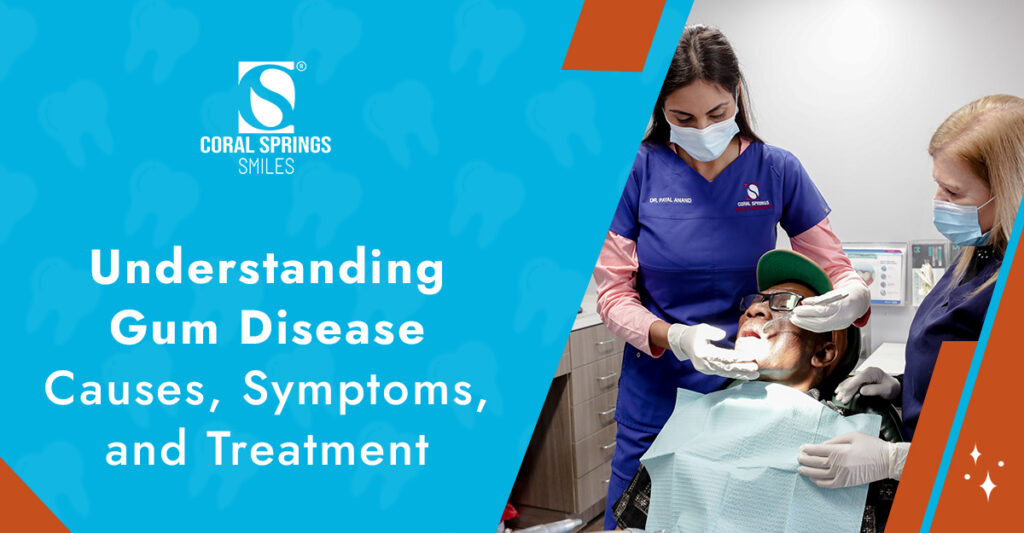
What Causes Gum Disease?
Gum disease, also known as periodontal disease, is primarily caused by the buildup of plaque, a sticky film of bacteria, on your teeth. If not removed through daily brushing and flossing, these bacteria can inflame and infect your gums, leading to gum disease.
What Are the Symptoms of Gum Disease?
Symptoms of gum disease can vary depending on the stage of the disease but may include:
- Red, swollen or tender gums
- Bleeding while brushing or flossing
- Receding gums
- Persistent bad breath
- Loose or shifting teeth
What Are the Different Types of Gum Disease?
There are two main stages of gum disease:
- Gingivitis: This is the earliest stage of gum disease, characterized by inflammation and bleeding of the gums. Gingivitis is usually reversible with proper oral hygiene and professional treatment.
- Periodontitis: If left untreated, gingivitis can progress to periodontitis, a more severe form of gum disease that can lead to tooth loss and other serious health complications.
Who Is at Risk of Developing Gum Disease?
While anyone can develop gum disease, certain factors can increase your risk:
- Poor oral hygiene
- Smoking or tobacco use
- Older age
- Hormonal changes in women
- Diabetes
- Certain medications
- Genetic susceptibility
What Is the Best Treatment for Gum Disease?
Treatment for gum disease depends on the severity of the condition. Non-surgical treatments include professional dental cleaning and scaling and root planing. In more severe cases, surgical treatments such as flap surgery or bone and tissue grafts may be necessary.
How Can Gum Disease Be Prevented?
Preventing gum disease involves maintaining good oral hygiene. This includes:
- Brushing your teeth twice a day
- Flossing daily
- Regular dental check-ups and cleanings
- Eating a healthy diet
- Avoiding tobacco use
What Are the Costs of Treating Gum Disease?
The cost of treating gum disease can vary widely depending on the severity of the disease and the type of treatment required. It’s important to discuss with your dentist or periodontist about the cost of treatment and any insurance coverage or financing options available.
Remember, early detection and treatment are key to preventing the progression of gum disease. Regular check-ups with your dentist can help detect signs of gum disease early and keep your smile healthy.



